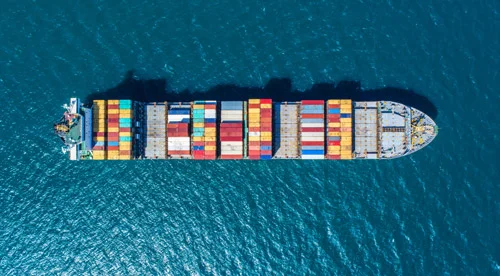Export Control And Foreign Trade Law in Germany
Companies in Germany must observe foreign trade law regulations in all their business activities. Export control compliance is an intrinsically important issue for all companies that export goods, regardless of whether they are categorized as civilian or military goods.
What does export control mean?
Export control is used by the legislator primarily as a security tool. It is intended, for example, to prevent the distribution of weapons of mass destruction internationally which would thereby promote armed conflicts.
On the basis of this fundamental principle, the supply of certain goods and commodities which, on the one hand, can be directly classified as war weapons or, on the other hand, are classified as dual-use goods, is subject to strict licensing requirements. Dual-use goods are goods that originate in the civilian sector but can also be used for a military purpose or can be used for this purpose (in a supporting capacity).

Export control as part of the compliance management system
A functioning export control system should be integrated into the compliance management system of a company in Germany. In this way,
- operational procedures can be defined and assessed,
- errors can be ruled out from the outset and
- corresponding penalties can be prevented.
Typical pitfalls of German foreign trade law for companies
In addition to export control in the narrow sense, a foreign trade compliance program should also be geared towards compliance with customs regulations relevant to foreign trade.
It is essential to classify the export goods correctly by identifying the relevant customs tariff number. The incorrect classification of a product can even lead to high additional demands from customs as well as unintentional infringements.
Dual-use goods lurk everywhere
A particular pitfall is the use of the code "Y901" in customs declarations if a proper verification has not been carried out by the company. We repeatedly observe that this code is given because it is assumed it will cause the least difficulties at customs. However, companies use this code to confirm that the product is not considered dual-use goods.
Dual-use goods very often include goods that, at first glance, are not related to weapons in any way: Pre-assembled garages, printers or even simple USB cables. Companies should therefore not be careless in carrying out new customs declarations without a legal review by a foreign trade lawyer.
Customs value without transaction value
Equally serious consequences can result from the false declaration of the customs value which the customs authorities regularly check in detail. Determining the customs value can be extremely problematic in individual cases, e.g. if a transaction value is not available.
As a rule, the range of procedural regulations under customs law is so wide that it is almost impossible for those responsible to oversee it without a regularly updated checklist system. Unfortunately, we have observed that companies greatly neglect customs law compliance and, in particular, foreign trade law compliance. Undiscovered errors often turn out to be a ticking bomb, both in criminal and economic terms.
Embargoes within export control
German foreign trade law also includes embargoes. These are restrictions on foreign trade for foreign policy or security reasons. A distinction must be made between country-specific and personal embargoes.
- Country-specific embargoes are linked to a specific country of destination. They may result from corresponding embargo regulations of the European Union or from the Foreign Trade Ordinance. Many country-specific embargoes are partial embargoes that cover only a stipulated sector of the economy. The company concerned must then check in detail whether the export item falls under the partial embargo.
- Personal embargoes are directed against specific natural persons and companies known by name. These are targeted full embargoes that are regularly based on UN Security Council sanctions that have been converted into directly applicable law by EU regulations. For the company, this results in an obligation to identify the business partners involved in the transaction and to check them against the relevant sanctions lists. Without a software-based export control system, this requirement is hardly realizable.
If embargoes are not observed - whether deliberately or negligently - various sanctions may be imposed: Prison sentences, fines, penalty fees, skimming off profits, exclusion from public contracts (blacklisting) as well as partial exclusion from certain markets (e.g. USA) or even from the banking system.
Our export control consulting services
Our experts support you in
- the construction, implementation or revision of compliance management systems,
- the establishment and improvement of the internal export control compliance organization,
- the integration of legal export control structures into other compliance management structures,
- the risk assessment when entering into a business relationship subject to export control regulations, including a business partner check,
- the ongoing monitoring, training and organization of legal export control measures,
- dealing with possible infringements
- and, if necessary, the assumption of the criminal defense.
Your attorney for export control and foreign trade law in Germany
Would you like to secure your export control through a compliance management system? Would you like to set up an export control system? Do you want to avoid errors in customs values and customs declarations?
You can contact our attorneys for all questions regarding foreign trade law in Germany by e-mail (info@winheller.com) or by telephone (+49 69 76 75 77 85 30). Please do not hesitate to contact us.
Do you need support?
Do you have questions about our services or would you like to arrange a personal consultation? We look forward to hearing from you! Please fill in the following information.
Or give us a call: +49 69 76 75 77 85 30



